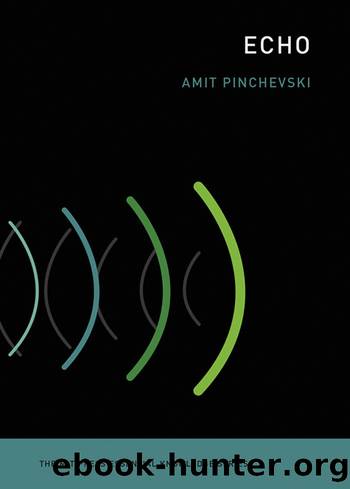Echo by Amit Pinchevski

Author:Amit Pinchevski [Pinchevski, Amit]
Language: eng
Format: epub
Publisher: MIT Press
Published: 2022-04-20T00:00:00+00:00
Figure 9 Illustration for the Collins Dictionaryâs 2017 Word of the Year competition. Reproduced by permission of scriberia.co.uk.
Still, Sunstein admits that sometimes avoiding public debate may be beneficial. Taking part in âenclave deliberationâ can help people interpret shared experiences, encourage discussion of public matters, and promote âthe development of understanding, knowledge, and positions that would otherwise be invisible, silenced, or squelched in general debate.â13 Note that such enclaves are not echo chambers: their modus operandi is deliberation, not echoing. The idea (and ideal) of deliberative democracy, as developed by philosophers and political theorists such as Jürgen Habermas, Joseph Bessette, Amy Gutmann, and Jane Mansbridge, among others, sees democracy as an inherently discursive form of political life. It is centered on principles of reason-based public discourse, open access and information, and equality among participants. The more democracy subscribes to these principles, the more it nears the deliberative ideal. And yet, to Sunstein these enclaves, even if practicing deliberation, present the danger that individuals âwill move to positions that lack merit but are predictable consequences of the particular circumstances of enclave deliberation. In extreme cases, enclave deliberation may even put social stability at risk.â14 This is because the dynamic of enclave deliberation tends to make views firmer and more extreme than they were before people entered the enclave. With social media platforms providing propitious settings for such enclaves, the result is an increasingly fragmented and polarized public sphere.
Despite its ubiquity, or maybe because of it, echo chamber is hardly a well-defined concept. It often appears in conjunction with other terms and ideas, sometimes synonymously. Homophily is one such term, which describes the tendency of people to prefer contact with similar rather than dissimilar people. Sociological reports of this tendency go back more than a century, explaining the emergence of homogeneous social networks and selective communication patterns. Or in other words, the tendency of likes to congregate.15 Another term is confirmation bias: a psychological mechanism of seeking and interpreting information in a way that conforms to existing views and beliefs, while disregarding or devaluing potentially contradictory information.16 Confirmation bias can be explained as a way to avoid cognitive dissonance: the discomfort that comes when simultaneously holding two contradictory views. Still another relevant term is selective exposure, a concept formulated by social psychologists in the context of radio and television broadcasting to describe the ways people negotiate their exposure to the mass media. According to one influential proposition, âPeople tend to see and hear communications that are favorable or congenial to their predispositions.â17 Descriptions of echo chambers often allude to, not to say conflate, these ideas and the phenomena they designate, which all predate the internet and social media.
Perhaps closest to echo chamber is the term filter bubble. Eli Pariser defines it as âengines [that] create a unique universe of information for each of us . . . which fundamentally alters the way we encounter ideas and information.â18 The criteria by which filter bubbles produce personalized online content are hidden from users and largely outside their control.
Download
This site does not store any files on its server. We only index and link to content provided by other sites. Please contact the content providers to delete copyright contents if any and email us, we'll remove relevant links or contents immediately.
4 3 2 1: A Novel by Paul Auster(12392)
The handmaid's tale by Margaret Atwood(7763)
Giovanni's Room by James Baldwin(7346)
Asking the Right Questions: A Guide to Critical Thinking by M. Neil Browne & Stuart M. Keeley(5775)
Big Magic: Creative Living Beyond Fear by Elizabeth Gilbert(5771)
Ego Is the Enemy by Ryan Holiday(5448)
The Body: A Guide for Occupants by Bill Bryson(5096)
On Writing A Memoir of the Craft by Stephen King(4943)
Ken Follett - World without end by Ken Follett(4731)
Adulting by Kelly Williams Brown(4574)
Bluets by Maggie Nelson(4556)
Eat That Frog! by Brian Tracy(4540)
Guilty Pleasures by Laurell K Hamilton(4448)
The Poetry of Pablo Neruda by Pablo Neruda(4106)
Alive: The Story of the Andes Survivors by Piers Paul Read(4031)
White Noise - A Novel by Don DeLillo(4009)
Fingerprints of the Gods by Graham Hancock(4004)
The Book of Joy by Dalai Lama(3986)
The Bookshop by Penelope Fitzgerald(3853)
